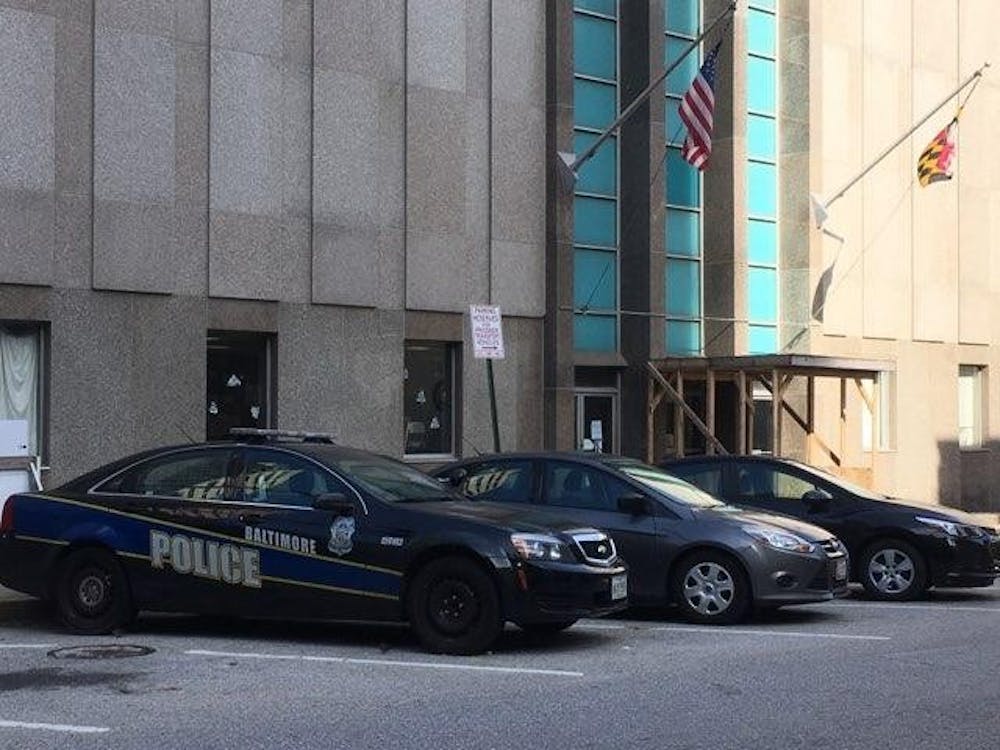The Maryland House of Delegates voted 94-42 in favor of Senate Bill (SB) 793, titled the Community Safety and Strengthening Act which will allow Hopkins to have an armed private police force earlier today. A similar bill has already passed in the Maryland Senate.
Once legislators have resolved the differences between the two bills, legislation will be sent to Maryland Governor Larry Hogan. In the past, Hogan has expressed support for a Hopkins police force. If he approves the new legislation, Hopkins will be the first private college in Maryland with its own police force.
In an email to The News-Letter, University Vice President for Communications Susan Ridge commented on the bill’s passing and reflected on the University’s hopes for the future police force.
“Today, the Maryland House of Delegates voted to support the Community Safety and Strengthening Act, a comprehensive bill that seeks to address root causes of crime in Baltimore City and would authorize Johns Hopkins to establish a small, public-facing, publicly accountable, and publicly transparent university police department,” Ridge wrote. “We believe a Johns Hopkins Police Department can be a model of constitutional community policing that has more public and community oversight than any other Maryland law enforcement agency.”
Members of Students Against Private Police (SAPP), however, protested the bill. At the House of Delegates meeting, protestors chanted “No private police! No private police!” before the vote took place.
In a statement sent to The News-Letter, SAPP asserted that there remains an overwhelmingly negative response to the bill.
“This bill has received a resounding NO from all constituencies affected by it: undergraduate and graduate students of Johns Hopkins University, over 100 faculty, neighborhood associations and community members surrounding Johns Hopkins Homewood and East Baltimore campuses, unions representing Hopkins service workers, the Baltimore City and Prince George County NAACP, the Maryland ACLU, and hundreds of individuals across the city who have called their delegates to say NO PRIVATE POLICE for Hopkins,” the statement reads.
During the legislative session, Maryland State Delegate Gabriel Acevero proposed an amendment that would establish a task force with the purpose of studying SB 793, stating that the bill lacks transparency. The amendment failed to pass.
Maryland State Delegate Nick Mosby proposed four amendments. The first would prevent a Baltimore Police Department (BPD) Officer from joining the Hopkins police force until two years after their term with the BPD has finished. The second would prevent the University from employing a police officer concurrently working for the BPD. The third would prevent Hopkins police officers from being entitled to protection under the Law Enforcement Officers Bill of Rights (LEOBR). The fourth would require the University to comply with requests from the civilian review board to terminate a police officer. All four amendments failed to pass.
On March 21, the Maryland House of Delegates Judiciary Committee advanced the bill with several amendments added, including the requirement that officers have their body cameras on; restrictions on purchasing surplus military equipment; and the requirement that a member of the Black Faculty and Staff Association serve on the University Police Accountability Board.
Before implementing a private police force, Hopkins will need to negotiate a memorandum of understanding (MOU) with the Baltimore Police Department and solicit community input. After negotiating the MOU, the University could begin recruiting and training officers by late 2019 or early 2020.





